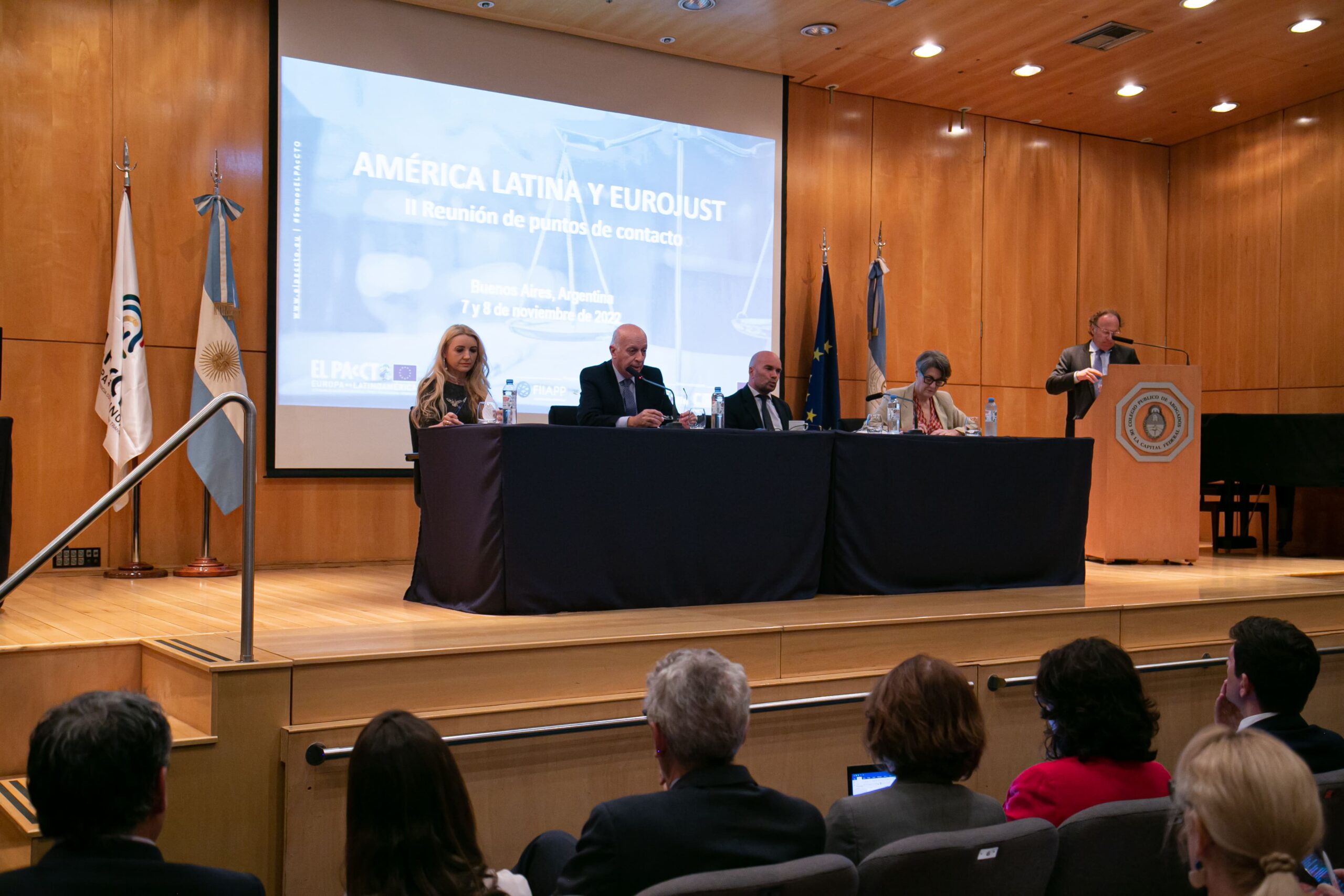Eurojust’s contact points in Latin America met in Buenos Aires with members of the European agency to discuss the Joint Investigation Teams (JIT) in greater depth. This is a sophisticated tool for international legal cooperation that is used in complex cases in the European Union, and it has now been replicated in Latin America with teams set up in countries including Brazil and Paraguay.
José de la Mata and Daniela Buruiana, national Eurojust members from Spain and Romania, detailed the European and international regulatory frameworks established for creating a JIT, while Antonio Segovia, Director of International Cooperation at the Chilean National Prosecutor’s Office, presented the Latin American regulatory framework for setting up these teams (from the Mercosur Framework Agreement to bilateral agreements).
The Latin American prosecutors present (the contact points) shared their concerns centred around operational aspects related to JIT leadership, dispute resolution, working language, etc.
Some of the conclusions reached can be summarised as follows:
- Need to continue working together and galvanise national will to intensify cooperation
- Development of internal rules on operational aspects (team members, use made of evidence, etc.)
- Need for training in this area for judges, prosecutors and police officers
- Promotion of national coordination mechanisms until the JIT is set up
General Guidelines on Coordination with Eurojust
This second meeting is a logical continuation of the work EL PAcCTO has carried out so far with Eurojust. The first meeting in 2021 approved the drafting of a General Guide on Coordination and Cooperation between the Contact Points and Eurojust.
This work has continued during the second half of 2022 with the specific adaptation of the Guide to the particular national circumstances in each of the 15 participating countries. The aim is to spread awareness regarding the work of Eurojust among national legal operators as well as information related to the support opportunities offered by the Agency. It also includes information on how to access the designated Contact Point in a country and what to work on with them.
